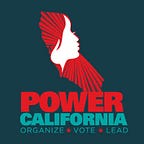Are We Alright? Black People and COVID-19
By Saa’un P. Bell
I grew up Pentecostal Christian.
So when my father texted me last week, “Babylon is falling,” I knew I couldn’t ignore it. It indicated how horrifying the reality of COVID-19 is for him. For my family — for Black people.
Growing up, expressions of fear were frowned upon and met with Black psalms and proverbs: “what you gotta lose,” “keep it pushing,” and, “Bells don’t ever say we can’t because we are ‘can-do’ people.”
In truth, we are a ‘can-do’ people that survive tragedy after tragedy. It’s a part of who we are, intricately woven into our spiritual DNA, from how we cope, to how we choose to stand tall in the face of adversity, to the art and culture we create. It’s reflected in our music from Mahalia Jackson’s rendition of “we shall overcome” to Kendrick Lamar’s “we gon be alright.”
Well, we aren’t alright.
In the last two weeks, emerging racial data on infection and death rates of COVID-19 reveal disturbing but expected racial disparities. Around the United States, Black people are 3–6 times more likely to become infected and die. Here in California, Black people are two times as likely to die from COVID-19 than our white counterparts, despite making up 6 percent of the state’s population, and living in a progressive state.
The Black death toll highlights the need to understand how and why we keep arriving at these racial disparities. Like 2008, it will be another “recession of recessions” for Black people. Because of the racial inequality baked into our health care, economic, and all other systems, we will experience disproportionate rates of ‘physical,’ social, and psychological death.
We have to respond differently than 2008. We need to ensure that the spirit of every policy, decision and vision centers around racial and economic equity. Many Black workers are on the frontlines of what’s keeping our economy going and keeping us safe — whether as healthcare workers, in our grocery stores and restaurants, or delivering goods and food to our front doors. Recovery and relief efforts need to center care for Black people in ways that recognize the disproportionate impact and burden that Black folks are (and have been) carrying.
Today, Black Americans on average have 10 percent of wealth compared to whites. The Federal CARES Act offers short-term relief for some. However, it’s a drop in a bucket compared to what corporations received. Since mid-March, 2.7 million Californians have filed for unemployment. The stories of how Black lives are changed are invisible in these numbers.
My partner is a long-time restaurant worker. She depends on tips, not her hourly wage. She worries about her health, and what the pandemic means for her income. Will Governor Newsom “consider stories of restaurant workers who work in an industry where business is prioritized over its employees?” She asks.
My sister, a 29-year-old Certified Nurse Assistant (CNA), decided not to work. She didn’t want to risk infecting her daughter and other relatives because “quarantining” is impossible when you are living with several families in a single-family home. She doesn’t qualify for unemployment benefits because she chose to protect her family.
My brother is a 32-year-old father of two small children. He owns a construction business. He worries about financial stability, and the possibility of infecting his wife and children. He can’t afford reliable health insurance. His stimulus check combined with his wife’s only covers a month’s worth of rent during “shelter-in-place.” Putting their lives at risk is a hard choice he and his wife make every day.
Each of these stories represents one of the thousands of Black people whose lives are shook by the pandemic. The racial wealth gap and racism internalized in our systems call on us to reimagine a California that works for everyone, especially Black people.
Governor Newsom should lean into bold structural change, rather than massive cutbacks. It’d be a mistake to let typical platitudes of “political” and “fiscal” feasibility prevent us from responding to this moment. We need recovery & relief efforts for working-class, low-income and unhoused Black people and families’ to be proportionate to the historical and present harm that Black people endured and are enduring. COVID-19 has shown how fragile and necessary healthcare, childcare, affordable housing, quality education, and living-wage jobs are for Californians.
If “Babylon is falling” is the double entendre my father meant, metaphorically speaking, America is falling. Let it. It’s not a place where all Black people can survive.
Let us, instead, build a California where the stories of people like my partner, sister, and brother drive the visions and policies that come next.
We need a new “alright.” I am tired of overcoming. I am tired of watching people I love do the same. We need to come out of this pandemic in a better place than before.
Saa’un Bell is a Philippine born, 1st generation Californian by way of Greenville, Alabama. She is a political and grassroots organizer. She is a Steering Committee member for Power California, and the Strategy Director for Californians for Justice.
